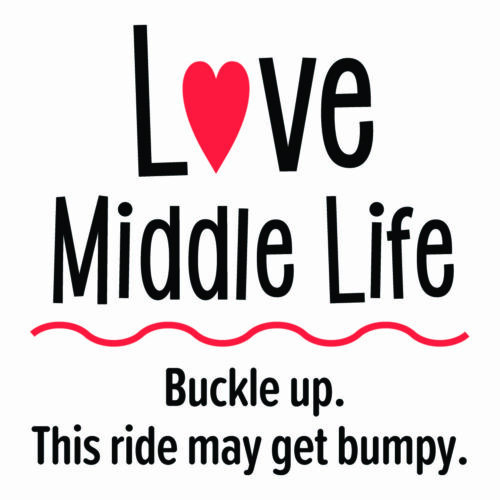My mom is in her late 70s and is experiencing dementia, as is my Aunt Elaine, her older sister who just turned 80. I love both of these women with all of my heart, and it is difficult to watch them lose cognitive abilities. They are not alone. As Americans continue to live longer, dementia is poised to become the biggest health challenge of the next few decades. The CDC expects the number living with Alzheimer’s to more than double from 5 million to 14 million by 2050.
I had the opportunity to speak with my cousin, Casey (my Aunt Elaine’s son) and his friend and one of the individuals helping provide support to him and his mom, Dr. Debra Tann. Dr. Tann specializes in brain health in Valdosta, Georgia, where my cousin and Aunt live.
Dr. Tann has an impressive background. For the past seven years, she has committed her life’s work to the advocacy of Alzheimer’s and related dementias. Her calling is to educate, empower, and encourage those in our community and at-large. Reminiscent (debraondementia.com) is the name of her business located in Georgia that is focused upon enhancing and advancing the knowledge and dialogue concerning dementia. Reminiscent strives to dismantle myths, illuminate the truths about the disease, and destigmatize those who are living with dementia, and usher uncompromised support for caregivers. She is an advocate, educator, stigma-buster and has a long list of accomplishments. She has written a book called, The Race of Dementia (Amazon, $15).
This blog will outline much of the information we discussed. But you can also listen to the conversation HERE on my podcast.
What is Dementia?
Dr. Tann gave very important clarification on Dementia: Dementia is not a single disease; it’s an overall term — like heart disease — that covers a wide range of specific medical conditions, including Alzheimer’s disease. Disorders grouped under the general term “dementia” are caused by abnormal brain changes. These changes trigger a decline in thinking skills, also known as cognitive abilities, severe enough to impair daily life and independent function. They also affect behavior, feelings and relationships. Alzheimer’s is the most common cause of dementia. The other most common types of dementia are Vascular, Lewy body, and Frontotemporal.

Symptoms and signs of dementia
Signs of dementia can vary greatly. Examples include problems with:
- Short-term memory
- Keeping track of a purse or wallet
- Paying bills
- Planning and preparing meals
- Remembering appointments
- Traveling out of the neighborhood
Many conditions are progressive, which means that the signs of dementia start out slowly and gradually get worse. If you or someone you know is experiencing memory difficulties or other changes in thinking skills, don’t ignore them. See a doctor soon to determine the cause. Professional evaluation may detect a treatable condition. And even if symptoms suggest dementia, early diagnosis allows a person to get the maximum benefit from available treatments.
There is no one test to determine if someone has dementia. Doctors diagnose Alzheimer’s and other types of dementia based on a careful medical history, a physical examination, laboratory tests, and the characteristic changes in thinking, day-to-day function and behavior associated with each type. Doctors can determine that a person has dementia with a high level of certainty. But it’s harder to determine the exact type of dementia because the symptoms and brain changes of different dementias can overlap. In some cases, a doctor may diagnose “dementia” and not specify a type. If this occurs, it may be necessary to see a specialist such as a neurologist, psychiatrist, psychologist or geriatrician.
Learn more: Memory Tests
Navigating Treatment Options
There is exciting progress in Alzheimer’s and dementia research that is creating promising new treatments for people living with the disease. It is important to learn as much as you can about which drugs are available. Talk about your options with your doctor. And CLICK HERE to learn more about treatment options.
Caregiving for Someone with Dementia: It Takes A Village
Caring for a person with Alzheimer’s or dementia often involves a team of people. Whether you provide daily caregiving, participate in decision making, or simply care about a person with the disease — VIST THE ALZHEIMER’S ASSOCIATION’S SITE and find great resources to help.
Resources and More Information
Check out Dr. Debra Tann’s business and website full of great information, REMINISCENT
Get Dr. Tann’s Book, The Race of Dementia (Amazon, $15)
Find Counselor Casey Cole Corbin at caseycolecorbin.com
Treatments/Medications for Memory Loss
The Alzheimer’s Association is one of the most trusted resources for information, education, referral and support:
- Call the Alzheimer’s Association’s 24/7 Helpline: 800.272.3900
- See their caregiving information for Alzheimer’s and dementia caregivers
- Locate a support group in your community
- Memory Loss & 10 Early Signs of Alzheimer’s | alz.org
Dementia Society of America’s site is full of great information
dementiadownthehall.com is a site that provides support for care partners who are helping someone who has dementia.
Everyday Dementia Guide Podcast
Listen to NPR’s report on Leqembi, the drug that has been approved that slows Alzheimer’s

